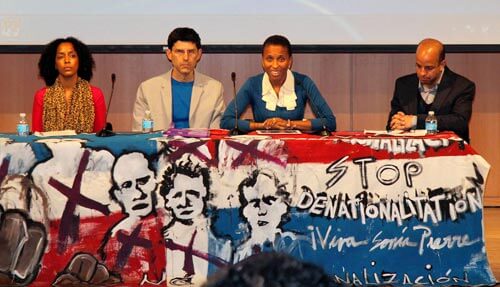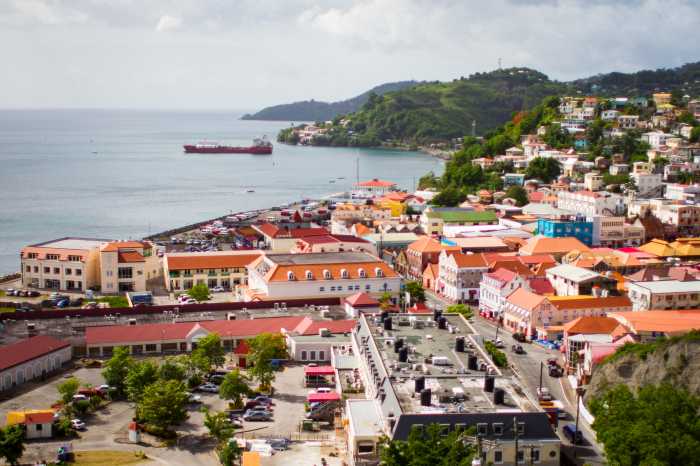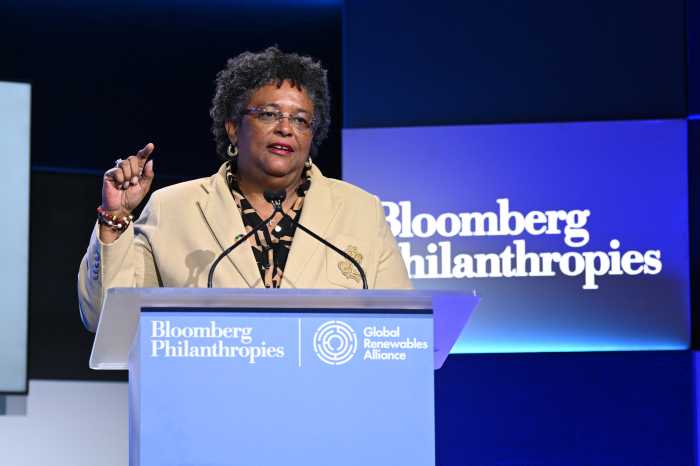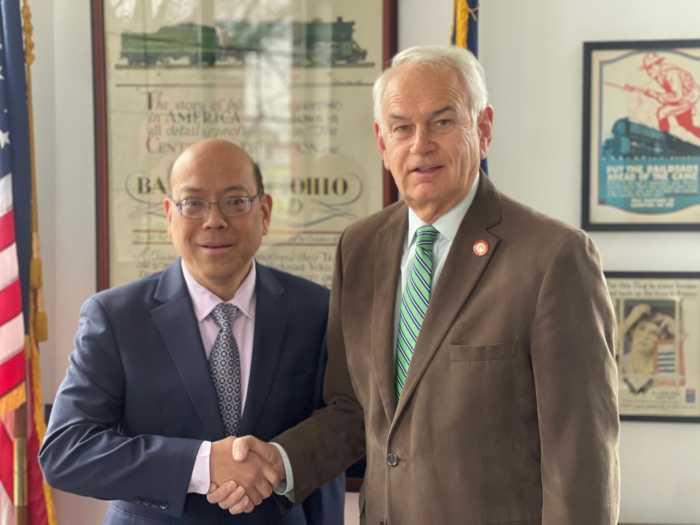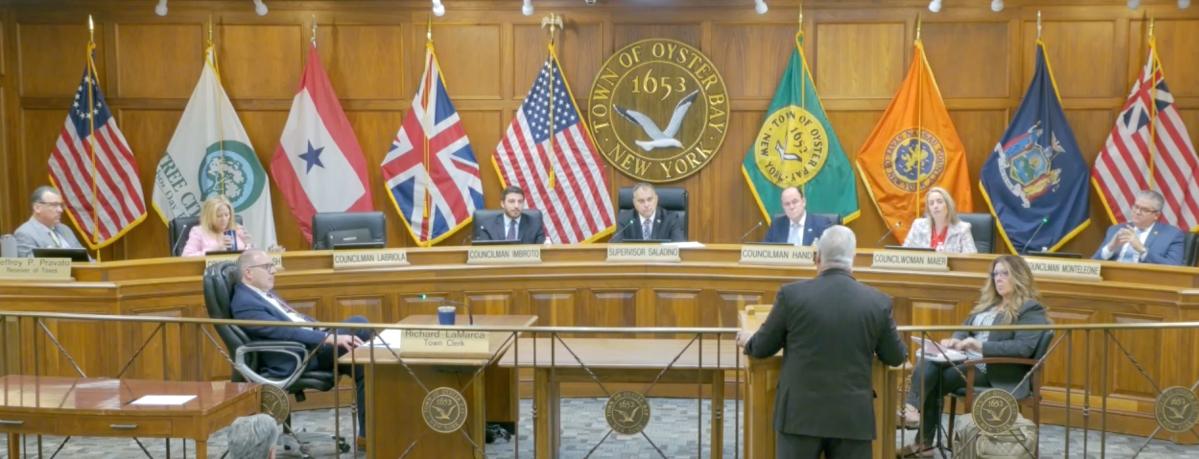Training for teachers regarding the stripping of citizenship of Dominicans of Haitian ancestry using the film “Birthright Crises” will be held Jan. 4, 2013 at Barnard College.
This follows an evening to contextualize the Sept. 23 Dominican Supreme Court ruling regarding Dominicans of Haitian ancestry, which took place on Dec. 5 at CUNY Graduate Center. About 180 mostly Dominican-ancestry students and other Dominicans, Haitians and other concerned New Yorkers attended the panel discussion and conversation.
Moderator John Jay College history professor Edward Paulino noted that there is a generational/gender schism with political decision-making in the Dominican Republic rendered almost exclusively by over-50-year-old men.
“The people affected are under those ages. They’re young and sympathetic to others and the issues of vulnerable groups,” he said, suggesting it must be youth to lead the way for change. (Mainly Dominican students organized the evening.)
“The Dominican Republic aspires to modernism without modernity, the rule of law,” he continued, referring to weak, antiquated, xenophobic, and corrupted institutions. He spoke of a ruling party that cannot provide electricity or water to its population. Anecdotally, he mentioned how when going through passport control he was asked by the civil servant who stamped his passport, “Where is my present?”
The concept of sovereignty is always attached to anti-Haitianism, he added. “Most of our history is collaborative. That Dominicans and Haitians are always fighting is historically incorrect,“ he said. Murders against Haitians are by “patriots in a campaign of hysteria” referring to a recent vigilante mob. (Also, 350 Haitians were given $22 relocation money and recently expelled to an area they had no family or familiarity with.)
“There is a hybrid of the cultures,” he said, reminding the audience of the 1952 to 1986 recruitment campaign of Haitian farm workers, braceros.
During the panel, it was noted that there were international legal victories for Haitian rights, particularly the Dominican girls Yean and Bosico’s Inter-American court 2005 verdict ruled in their favor for their citizenship rights, and the “Guayubin massacre” verdict in 2012, condemning the Dominican human rights abuses regarding a massacre that took place years before.
These Inter-American court rulings were followed by internal Dominican resolutions – 2005, rejecting the court’s decision and later, changes in the law ultimately leading to the denationalizing amendments in the Dominican constitution in 2010, 2011, and 2013.
With the screening of the 15-minute 2005 documentary “Birthright Crisis,” visual and testimonial context set the scene in the Dominican Republic.
The film highlights Haitians and Dominican/Haitians living in the Dominican Republic who were rousted, yanked from their homes and their Dominican-born children and deported at whim. On screen speaks the mother, fighting for her daughter’s rights, one of the two Dominican-Haitian girls whose case was heard and upheld at the Inter-American Court. Renowned activist Sonia Pierre, Dominican of Haitian ancestry, whose life was devoted to fighting for the rights of Haitians and Dominican/Haitians, also adds context. Pierre died two years ago, Dec. 4, 2011.
“(Disenfranchised) children are unable to move forward,” said the film’s director Miriam Neptune, calling the recent ruling nothing less than Jim Crow and apartheid, so that “you cannot imagine a future here.” Neptune works with Haitian Women for Haitian Refugees and made the film collaborating with MUDHA, Movement of Haitian-Dominican Women, the organization Sonia Pierre founded.
The documentary films, “Sugar Babies” and “The Price of Sugar,” and narrative film “Haiti Cherie” were also mentioned during the evening as sources that provide context to the current the recent rulings.
Also on the evening’s panel, South Bronx health educator and activist (We Are All Dominican and Dominicanos por Drecho) Rocio Silverio spoke at length about what does it mean to be Dominican. She particularly addressed the issue of “jus sanguinis” (right of blood), an amendment to the Dominican constitution that determines that citizenship is cultural and ethnic and not determined by place of birth.
Silverio asks what makes her, born, raised and living in the Bronx, Dominican, while those born and living for decades in the Dominican Republic are not. One might question how is it possible to call third and forth generation Dominicans of Haitian ancestry “in transit”?
Currently, many Dominicans of Haitian ancestry who have tried to formalize their status have had their papers confiscated. The denial of identity documents prevents their registering to go to school, to work, to get married and to travel outside the country. After decades of living in the Dominican Republic, these Dominican-Haitians have lost ties to Haiti as the current rulings that render them basically stateless.
Samuel Martinez on the panel spoke of modernization of prejudice using public relations techniques for a broader reach for xenophobia.
Petitions condemning these actions were available to sign as are other action oriented opportunities for street outreach and event planning.
For more actions info email wearealldominican@gmail.com.


